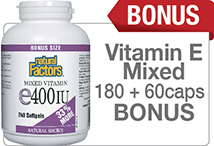Angina
Updated Oct. 13th, 2017
Angina is defined as chest pain due to a lack of oxygen to the heart (ischemia). This ischemia is most often due to spasm or constriction of the blood vessels that supply the heart muscle itself, (the coronary arteries). When there is lack of oxygen to the muscles of the heart, it does not function optimally in terms of pumping out adequate blood supply to the rest of the body.
Symptoms of Angina
Angina may feel like pressure or squeezing Similar to a heart attack, the pain can also be felt in the shoulders, neck, arm or back, depending on the individual. For the most part, Angina is not so much a disease in and of itself, but rather a symptom of or precursor to Coronary Heart disease (CHD) or Coronary Artery Disease (CAD).
These occur when plaques build up inside the walls of the coronary arteries, obstructing the flow of oxygen rich blood to the heart. When these plaques build up and form clots, they can obstruct blood flow completely, leading to what we refer to as a heart attack or myocardial infarction (MI). Angina does not always lead to heart attack. There are degrees of severity in terms of angina. For all angina sufferers it should be taken seriously as a predictor of future heart attack risk, and a need for diet and lifestyle change.
Different Types of Angina
Angina ranges in severity and can sometimes be predictable, this is referred to as stable angina and will occur following or during certain activities and last for a predictable amount of time. For example, one may have angina symptoms during moderate or intense cardiovascular exercise. There is medication that can be taken for stable angina which has proven effective, for example, nitroglycerin can be used when one knows they will be experiencing angina. Although all angina symptoms should be taken seriously, stable angina provides an opportunity to attempt early interventions like lifestyle changes and natural treatments as they will have a greater rate of success at this point.
Unstable Angina tends is undoubtedly a red flag and should require more immediate and serious attention. Unstable angina can be an unexpected worsening of stable angina. It does not follow any particular pattern and can happen just as often at rest as it will during exercise. The pain associated with unstable angina tends to be more severe in nature and does not always respond to Nitro. Unstable Angina is a significant predictor of future heart attack, in fact most individuals should consider this a heart attack or medical emergency until a doctor can verify otherwise.
Variant (or Prinzmetals) Angina occurs most commonly when you are at rest – usually overnight. It is also quite severe, but does respond to medication. It is more rare than the other two forms and is not usually a sign of heart attack risk on its own.
Microvascular Angina, usually a symptom of Coronary Microvascular Disease, instead of CHD, is also somewhat less common. It can also be more severe and usually lasts longer than other types of Angina. Medication may not be effective with this type of angina as it is not caused by plaques or blockages of the small coronary arteries as in CHD.
Give me some Drugs
As mentioned, Angina is almost always acutely treated with Nitrates, such as Nitroglycerin. Nitro works by opening or dilating the coronary arteries to allow more blood to flow through. It usually comes in sublingual tablets or sprays that are very fast acting. Individuals taking nitrates are often told to go at least 12 hours a days without taking them, some would advise taking them even less often, as the body can become less sensitive to its effects over time (and usually higher and higher doses are needed). Some individuals are also put on calcium channel blockers and/or beta blockers to decrease heart rate and lower the overall burden on the heart. Blood thinners are also often prescribed to help prevent clot formation in the coronary arteries.
Risk Factors and Dietary Modification
Some common risk factors for angina include being male (angina seems to have a better prognosis in women), having diabetes, excessive alcohol use, a family history of CAD and stroke, high blood pressure, high salt intake, obesity, poor cholesterol profile, smoking and low levels of physical activity. High stress and anxiety can also be risk factors. As you can see, there are a lot of lifestyle factors that one can work with to minimize risk. The first would of course be weight loss and increasing mild to moderate physical activity, as long as there are no heart related symptoms. Exercise is still important with these symptoms, but exercise regimes in this case may need to start much more slowly and be supervised or monitored by a healthcare provider. Weight loss can be achieved via cutting back on sugar and salt and high fat meals (think anything processed), increasing vegetables and fruits and water intake, along with fibre. This will not only help with weight loss, but also should prevent cholesterol levels from rising, or lower an already low to moderate risk cholesterol profile. For diabetics, exercise and a better diet leading to weight loss also means better blood sugar control and less risk of diabetes related complications. Add some raw garlic and onion to your meals. Eating them raw or as least cooked as possible helps these agents to retain their medicinal properties, which include lowering total cholesterol and triglycerides, while increasing HDL, as well as discouraging platelet formation. Cutting down on alcohol and quitting smoking will also help to improve almost all measures of health within the body, including and especially cardiovascular.
Heart Smart Supplementation
If you are hoping to avoid the aforementioned medications, you may also want to introduce one or two well researched and effective natural supplements into your new heart healthy routine. There are a lot to choose from. Talk to your Naturopath or healthcare provider to find the few that are most right for you. Some options include amino acids, such as carnitine and arginine. L-Carnitine can be obtained in diet through mostly red meats, something that most individuals looking to eat 'heart healthy' are most likely avoiding. For this reason, deficiencies in both vegetarians and health conscious individuals are not uncommon. L-Carnitine has been found effective in reducing the incidence and severity for angina and ischemic cardiovascular events, as well as reducing cholesterol. arginine has been shown to improve exercise capacity, and has been shown to have effective anti-atherogenic, anti-ischemic and anti-thrombotic properties. Hawthorne is another amazing cardiovascular support herb. It has been shown to both regulate blood pressure (used for both low and high pressures), as well as improve pain and tightness caused by angina. Garlic can be taken as a supplement to help lower cholesterol and blood pressure, which can be symptoms of or predisposing factors to developing CAD. Co enzyme Q10 has also been shown to increase exercise capacity and significantly reduce episodes of chest pain in individuals with stable angina. High dose fish oil has been shown to decrease the total number of attacks in Angina sufferers, as well as decrease serum triglycerides, and increase exercise tolerance time. Magnesium has also been shown to be helpful in the treatment of unstable angina and during acute myocardial ischemia. Most of the acutely used treatments deal with IV Magnesium,although oral supplementation may be useful long term for prevention of acute episodes.























I didn't really know what angina was until reading this article. I thought it could have been a form of a heart attack but it was good to learn that angina is actually a pre-cursor or warner of a heart attack. This just goes to show how amazing your body is that it detects things and alerts us so that we can avoid impending doom. Angina seems to be quite serious on its own and I'm glad that there are things that can be done to help prevent heart attacks and angina once symptoms arise.
Hello, Rose With Thorns,
Indeed, our bodies are excellent at warning us and protecting us from more dire health issues. It's nice to hear you not only enjoyed reading our article on Angina, but that you were able to learn more about your health. Thank you for sharing. You can learn more about heart health in this article as well if interested, https://www.nationalnutrition.ca/articles/health-concerns/heart-health/
I was looking for information detailing more specifically what angina encompasses and got it! I like how you delineate the different types of angina, include established risk factors, and mention multiple treatment options including dietary intervention, herbal/natural remidies and drugs. My father and grandmother experience heart issues, including angina, and this article was helpful!
Hello, Rachel,
Happy to hear this article provided you with the information you were looking for. We work hard to provide a well-rounded resource for natural health knowledge. Thank you for sharing your takeaways and comment. Be sure to check out our healthy recipe section too: https://www.nationalnutrition.ca/articles/healthy-recipes/
Have a healthy day!